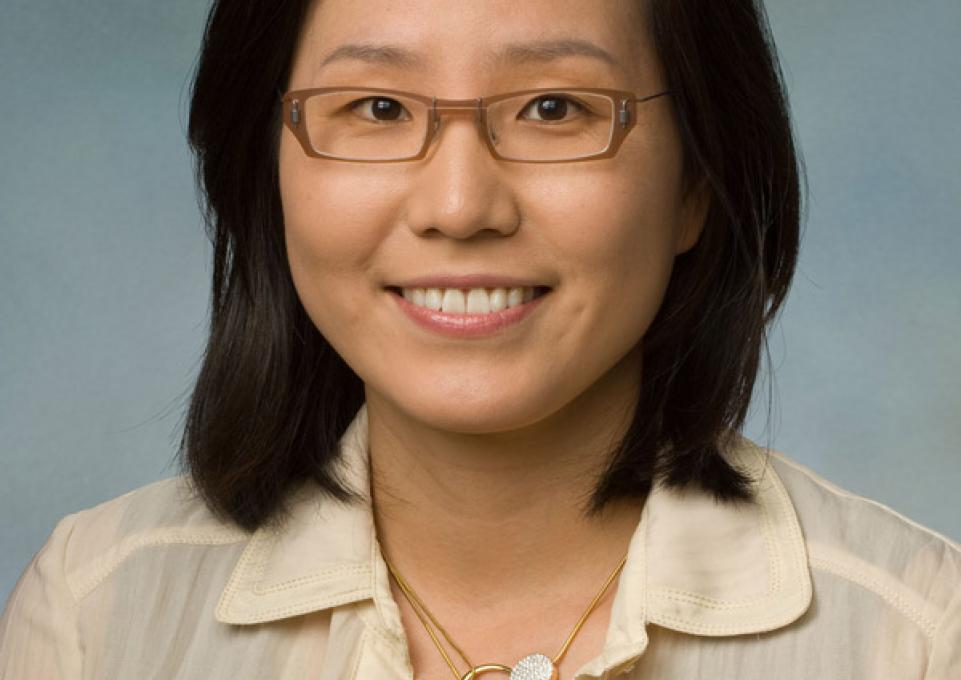
Keunyoung Oh, associate professor of fashion and textile technology (FTT), knows that consumer surveys don’t always tell the whole truth. In fact, sometimes, there is little truth to them at all.
In the early 2000s, Oh worked for multinational marketing research company in Seoul, South Korea. Over five years, she administered thousands of surveys to gauge consumer perceptions and shopping behavior. She discovered that responses often didn’t match purchasing behavior.
“Sometimes consumers’ choices are irrational and they don’t want to admit that. People react by instinct and that instinct is often suppressed from their conscious mind,” Oh said. “It’s their emotions that inform their shopping behavior.”
Oh recently found a way to literally tap into consumer’s emotions—through electroencephalography (EEG). By slipping a cap filled with electro-gel over participants’ heads and connecting it to a piece of equipment called the NeXus 32 system, Oh can read their brainwaves. The NeXus 32 records physiological and neurological responses to stimuli.
While her subjects are viewing various product websites, Oh is able to monitor what draws their attention to particular products and what their level of emotional engagement is.
“This measures emotions within 1,000 milliseconds from the onset of the visual stimuli,” she said. “Most people don’t remember the exact emotions they felt; it is too quick. Even if the emotions don’t connect with the conscious process, they do affect behavior.”
EEG technology is often used to diagnose such conditions as attention deficit disorder, insomnia, and depression through neurofeeback therapy. Oh said that this equipment provides an advanced version of neurophysiological responses and is part of a new a field called neuromarketing.
“Apparel retailing has not done much of this kind of research—measuring how consumers react to stimuli. We’re on the forefront of this,” she said. “If merchants are selling cosmetics or clothes, they want to know what the emotional reaction is to their websites, how consumers allocate their attention to, how to cognitively process the information, and how engaged they are in the products.”
The School of the Professions and the FTT Department purchased the NeXus system and a grant from the Research Foundation paid for the training on how to operate the system and interpret the data.
FTT students will participate in a project with this new experiment, NeXus 32 from November 17 through December 15. In 2017, Oh plans to recruit members of the community to get a broader swath of backgrounds and ages. She then plans to present and publish her results in the field of neuromarketing as well as at fashion marketing conferences and in academic journals.
About Keunyoung Oh
A native of South Korea, Oh earned her bachelor of home economics degree in clothing and textile from the College of Human Ecology, Ewha Womans University in Seoul. She earned her master’s and doctorate degrees in textile and clothing from Iowa State University. For several years, she worked in the apparel industry in Seoul as senior merchandiser and then as a researcher and marketing science director at Kantar TNS (formally known as Research International). She also taught at several universities in Seoul and Auburn University in Auburn, Alabama, before joining the Buffalo State faculty in 2008.
